Why Dan Andrews was the leader we needed during a pandemic
The premier knew being the person to limit the liberties and livelihoods of Victorians during the coronavirus pandemic would make him unpopular, but he also knew Victoria going it alone was the only way to save so many lives.
Premier Dan Andrews knew at once this press conference was “strange”. He studied the journalists’ faces. They were not hunched over their phones or looking unmoved.
Instead, they stared at the man who intended to limit liberties and livelihoods.
Andrews was announcing his pandemic plan at a newly commissioned intensive care unit at the Royal Melbourne Hospital. He described how going to school, work or the pub would soon be banned.
It was March 10, three days before the Australian F1 Grand Prix was cancelled and Prime Minister Scott Morrison would announce limits on gatherings of more than 500 people.
Andrews was worried. He faced two battles.
Medical modelling suggested the virus might spread before he could introduce radical measures to confront the threat. The other was convincing some Victorians the dreadful scenes in Europe could be replicated here.
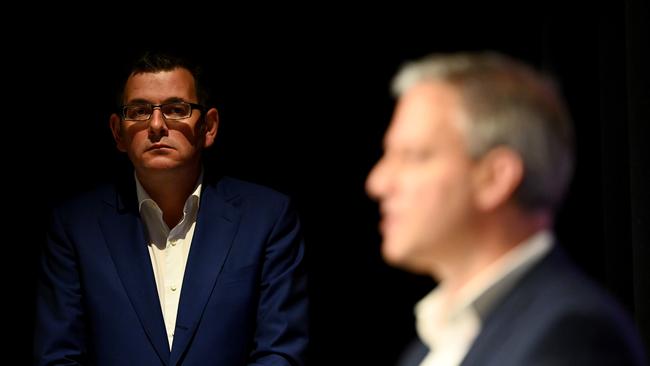
He had assumed a war footing a few days earlier. There had to be a better way than the death tolls of Spain and Italy. He feared the health system would be overrun, that doctors would have to choose which patients they did — and did not — try to save.
His “extreme” measures rhetoric was supposed to jolt listeners. The threat was real, and it was coming.
This was 10 weeks ago. For Andrews, understandably, it feels like “five years ago”.
He is speaking from Mulgrave, where he is running the state from the home office he commandeered from wife Catherine. Reports depict piles of clothes on the dining room table, and an awkward Dad in the uncustomary role of family chef.
Andrews has slept four to five hours a night since the pandemic began, but he says he isn’t tired. The upside is he is home for dinner, with the three kids, a pleasure denied him for decades.
He is hopeful the virus threat will pass — for now, he says, we remain on “the cusp of beating this”.
If he believes drastic measures in the early days of the virus shaped a kinder reality now, he also knows that some parts of the economy, such as small business, may never recover.
Two nights after the Royal Melbourne Hospital press conference, Andrews sat at Kirribilli House in Sydney.
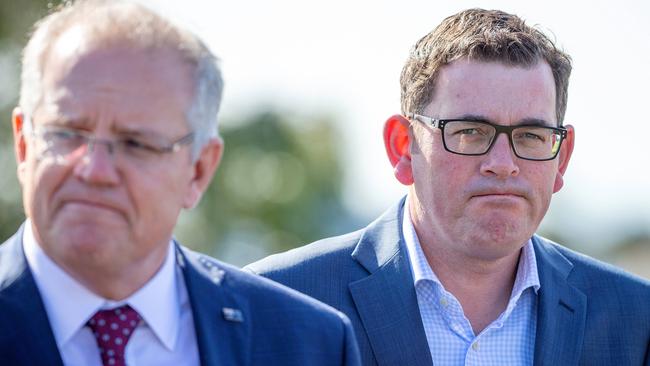
He had stayed back, with Morrison, to share a whisky after a dinner for state and territory leaders. The pair discussed what would need to be done, and Andrews voiced the view that stimulus packages might morph into survival payments.
Despite their political differences, Morrison and Andrews had always shared a sound working relationship. Their cosy drink, in a political culture of combativeness, is emblematic of novel political paradigms. In crisis, people on opposite sides of politics say nice things about each other.
Andrews praises Morrison for his decision the day after at the scheduled Council of Australian Governments (COAG) meeting at Parramatta Stadium. The prescribed agenda was hijacked by the “pretty startling” recommendations of the nation’s Chief Medical Officer, Brendan Murphy.
Murphy explained the need for major restrictions. Andrews says the urgency of the data scuttled any “notion of us all doing a press conference and then getting on a plane and waiting for a month”.
Within an hour, Morrison had founded a National Cabinet. It has since shed the usual partisan lines in pettiness and bypassed red tape. Andrews says it was “arguably the best COAG meeting” he had attended — and, he hopes, the last.
The following days offered little comfort. Andrews had liaised frequently with NSW Premier Gladys Berejiklian during the bushfires emergency. He found her to be a “great person” to work with and a “very, very formidable person”.
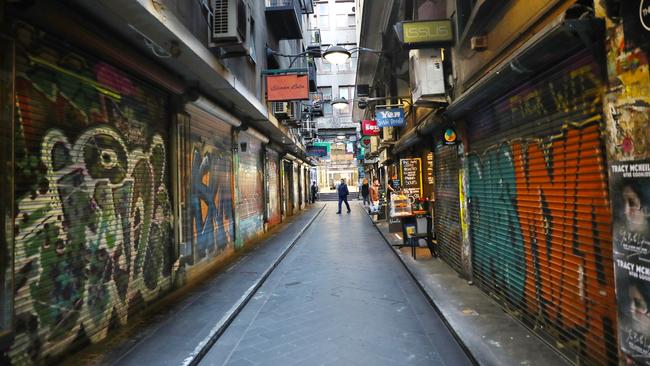
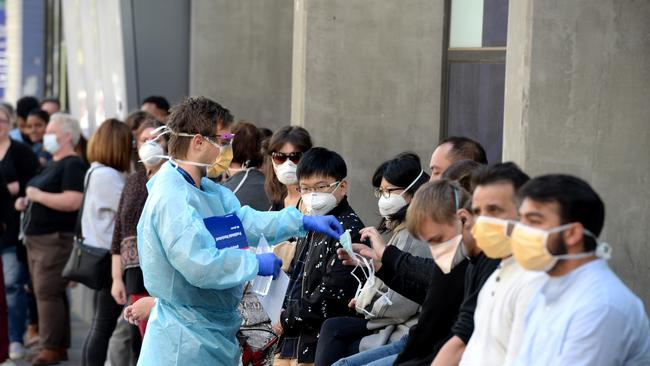
She was facing scrutiny over the revelation that passengers from the Ruby Princess cruise liner were freed to go home after the ship docked in Sydney. On Saturday, March 21, thousands gathered in defiance of distancing warnings at Sydney’s Bondi Beach.
Andrews felt fear and frustration.
Victoria’s case rate had jumped by 67 on the Saturday. As he absorbed medical modelling depicting “absolutely catastrophic outcomes”, Andrews was hearing that patrons were still surging to Melbourne bars and restaurants.
He was being told that five unchecked cases could become 60,000 within weeks, thousands would be dead, and tens of thousands reliant upon a hospital system that lacked safety equipment or lifesaving ventilators.
Andrews and Berejiklian co-operated in giving the shutdown process “a bit of a nudge”. They would impose restrictions — in Victoria, the imminent closure of schools as well as pubs and clubs — ahead of the national timetable.
“I just made a decision, and I think so did she, that we didn’t want to look back in three months or in five years and wish that we had done more,” Andrews says.
“As challenging as that is, knowing the pain you’re going to inflict and the damage you’re going to do, if you’ve got a strategy to deal with the health issue … then you had to act. And we didn’t have time to wait.”
Andrews calls the decision “the moment”.
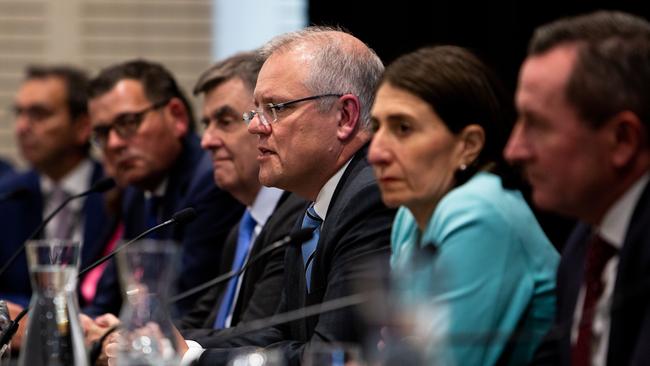
He and Berejiklian were accused of fracturing solidarity. Their decision compelled a National Cabinet meeting to be brought forward, and appeared to catch Morrison unawares.
Andrews argues that it was the most pivotal decision in the virus battle. He doesn’t care if the announcement fell outside accepted protocols. Each state’s circumstances were different. They had to make the best choices for them within a national framework of a unified forum.
If Victoria had waited a fortnight, or even a week, Andrews is convinced the virus would have spread beyond control.
“You’ve got a moment, and you’ve got a real sense that if you don’t do something now, you won’t get this moment back,” he says.
Another massive decision was the supervised self-isolation of returning travellers. Reports that people were flouting the isolation rules alarmed Andrews, who raised the notion of empty hotels in the forum. The national initiative of mandatory hotel stays for returning travellers, announced on March 27, is credited with stopping numerous outbreaks.
“I would have to say that I was confident all the way through that if we took the measures that we ultimately did in that staged way — the first, second and third stage — that we would be able to avoid the absolute worst of it, that we would avoid a kind of Italy outcome. The one thing that was a little bit doubtful — would people follow the rules?”
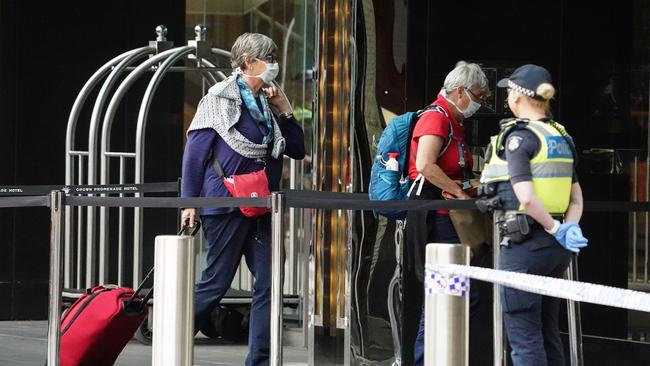
He describes getting the message through as a “journey”. Back in March, many dismissed the virus as an old-people disease or as a threat to those with pre-existing medical conditions.
Imparting the urgency of the pandemic, and the measures required to stem its spread, inspired Andrews’ bald rhetoric during this time. Selfish choices, he said, would kill people.
The rawness of the message worked, he says. Overwhelmingly, Victorian heeded the stark warnings and restricted their travels to essential errands.
“I’ve made the point a number of times, and I’ve taken no pleasure in making it, if this gets away from us, no Victorian family will be untouched by it,” he says.
“A lot of young people and a lot of otherwise healthy people have lost their lives in other parts of the world. And there’s no reason to think that wouldn’t have been the case here.”
The obvious difficulty has been balancing the health imperatives against the damage to the economy. Cafe owners to travel operators have voiced their concerns about a slow return to normality.
Andrews counters that the risks remain. There is only one shot at reopening. A second wave and a second shutdown would compound the economic damage. He queries the breadth of demands for a faster pace.
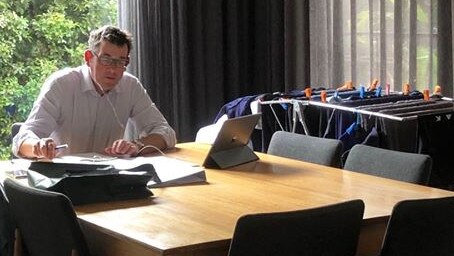
“People are jealously guarding the success that we have had, while people want to reopen, they’re very pleased with the cautious and staggered way in which we have done that,” he says. “I think people have a real sense that they have made a contribution to these numbers and they don’t want the progress frittered away.”
He cites his father’s South Melbourne cafe where he worked for a few years after university. Bob Andrews owned a number of small businesses through his life.
Andrews recognises the virus shutdown has “crushed” people’s livelihoods. Small business people who, “like “my old man”, “have built something from nothing”.
These “very, very difficult” choices have “affected” him, he admits.
“I can only reflect on my own upbringing and my own family, which gives you a greater insight into what it means to turn the tap off and essentially do enormous economic damage.”
Andrews wouldn’t have believed at the start of the year if he’d been told Victorians would face bushfires, then a global pandemic that shredded liberties and stripped the economy.
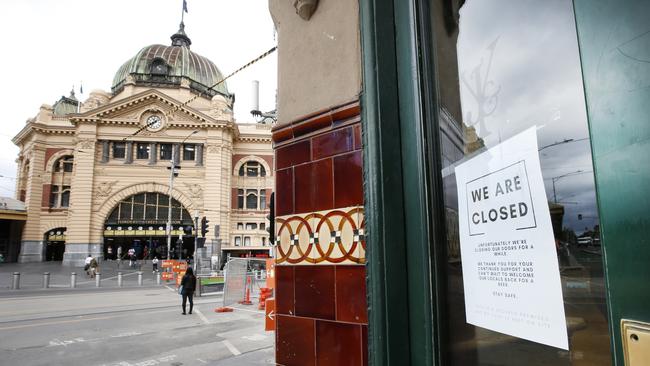
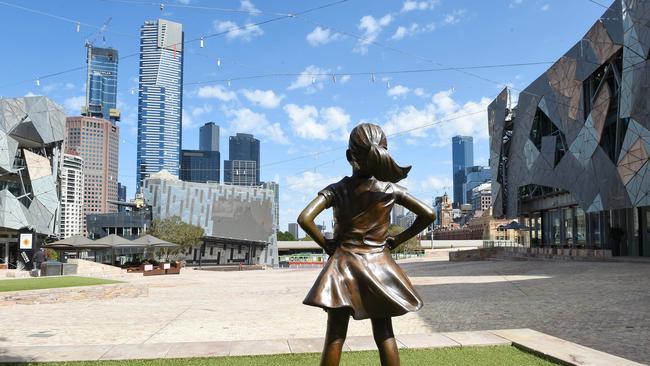
Yet that is the nature of leadership: “You’ve got to deal with the challenges that you confront and there’s no good getting stuck on how unique it is, you’ve just got to get on and do the job and that’s what Victorians have done as well, and the numbers demonstrate that it was the right strategy.”
Andrews says he has drawn on reserves of energy that replenish him in stressed times, though he adds that the likes of bushfires or election campaigns have not demanded such prolonged dedication.
He has been unfazed by Opposition taunts and the label of “Dictator Dan” by Kew MP Tim Smith. Nor will he be drawn on the ill-advised tweet about Captain James Cook by deputy chief health officer Dr Annaliese Van Diemen, except to say that she is on a team that has saved thousands of lives.
He sounds pleased there have been less politics in the past two months than in the past 25 years. He doesn’t have time to focus on things, issues or people who are “fundamentally irrelevant”.
There are learnings from every crisis, he says. The advent of the National Cabinet looms as one of the more significant of this one.
‘My view would be that COAG is basically finished, or should be,” he says.
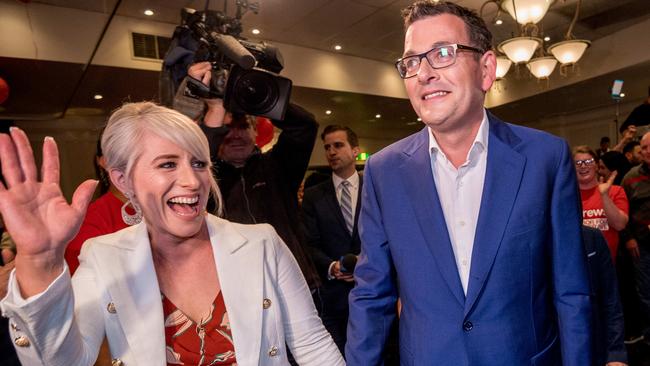
Andrews believes that political sniping has always impeded COAG. He says the National Cabinet has made urgent decisions without ill-will or argument and retaining it presents a unique opportunity to address fast decisions on fundamental reforms.
“It is the PM’s call on whether there is a National Cabinet going forward but I had nearly an hour on the phone with him on Tuesday night talking about all sorts of national reform ideas and opportunities …” he says.
“While it’s for the PM to make announcements, I certainly don’t want to go back to the days of COAG where we all go up to Canberra or Sydney or wherever it is, we have a pretty turgid meeting where we don’t decide much, then we all line up and do a press conference where we at best are polite about each other, and at worst it’s a conflict model that doesn’t really work.”
Andrews is usually a keen player at Kingston Heath Golf Club on Sundays. He acknowledges the unpopularity of his government’s golf ban, but he isn’t about to take advantage of its lifting.
From helping small business, to tackling the inevitable unemployment surges, he doesn’t have time.
“The least I can do is be focused on them rather than playing golf.”

